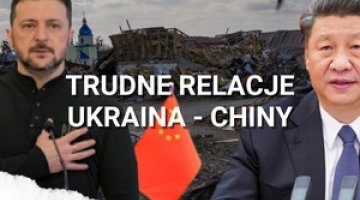Akhmetov’s expansion onto the Ukrainian electricity market
Last December and this January, the DTEK company (which belongs to Rinat Akhmetov’s SCM group) won the tender to buy share packages in three thermal power plants: Zakhidenerho (45.1%), Dnieproenerho (25%) and Kyivenerho (25%), as well as in the Donietskoblenerho group (40.1%), which distributes electricity in the Donetsk region of Ukraine. The shares purchased, together with those already obtained, give Akhmetov – who is the richest businessman in Ukraine – control of all four companies; he now owns more than 70% of the shares in each case. The total cost of the transaction was US$500 million. Earlier, in November 2011, DTEK won the competition for a 49-year lease of Svierdlovantratsyt and Rovenkyantratsyt, two coal-mining (anthracite) companies which include eight of the largest mines in Ukraine. After this transaction, DTEK controls four of the six energy generating companies with a total capacity of over 18 GW, which produce over 30% of the electricity consumed in Ukraine; as well as the energy distribution in the most profitable regions of the country (namely Kiev and the Donetsk basin). The lease of the mines strengthens DTEK’s position on the coal market, as it now owns over 50%. The company has an integrated chain of production (coal mining → enrichment → production & distribution of energy), which makes it completely independent of external suppliers.
-
In the tenders to privatise the power plants, DTEK was either the only company participating, or the competition was only a formality. In some cases, the tender’s conditions were drawn up in such a way that only Akhmetov’s company could have met them. For example, in the case of Zakhidenerho, the condition was that 70% of the coal used should come from Ukraine, whereas the majority of coal mining for the use in the power stations is controlled by DTEK. Media reports that the companies were deliberately undervalued are difficult to verify.
-
The acquisition of Zakhidenerho, which includes so-called Burshtyn Island (power plants in western Ukraine with a capacity of 500 MW, which is integrated with the ENTSO-E system used in the EU), means that SCM has taken control of Ukraine’s electricity exports to EU countries (2.5 billion kWh in the first 10 months of 2011). The profitability of the exports and the excess capacity of Ukrainian plants will foster the ongoing acceleration of work on the greater integration of the Ukrainian power network with those of Europe, which is consistent with the objectives of Ukraine’s membership in the Energy Community.
-
Akhmetov’s takeover of the power plants minimises the chances that Ukraine will agree to make its electricity networks available to Russian electricity exports to the EU, which Moscow had sought intensively in 2010. Allowing the transfer to Europe of Russian energy, which is cheaper to produce, would be contrary to Akhmetov’s interests.
-
Putting a monopoly of the conventional electricity market into the hands of a single businessman is further proof of the progressive ‘oligarchisation’ of the Ukrainian economy under the rule of the Party of Regions. Last year Dmytro Firtash achieved a similar position in the fertilisers industry. This trend will most likely continue in future privatisations this year.





